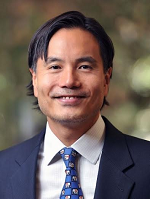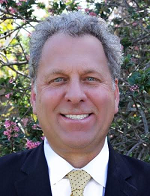Flexus Biosciences nabbed a $1.25 billion acquisition by Bristol-Myers Squibb ($BMY) in early 2015 after less than two years spent researching novel small molecule cancer immunotherapies that are promising as combinations with existing immuno-oncology drugs. Now, former Flexus execs are together again in another effort to create novel small molecule oncology candidates that are potentially single agent therapies, and combinable with each other as well as existing immuno-oncology approaches, such as checkpoint inhibitors.
The new company, dubbed Ideaya Biosciences, is focused on inducing synthetic lethality, the notion that the combination of two specific paired mutations can lead to cell death, as well as on immuno-oncology. The idea is to develop candidates for specific genetic populations and to combine the two approaches to enhance tumor response.
The initial indications will include non-small cell lung cancer (NSCLC) as well as colorectal, prostate, breast and ovarian cancer. The South San Francisco, CA-based startup has already identified several specific genetic sub-populations to guide its target discovery process--but it’s not disclosing them yet.

Ideaya is headed by Yujiro Hata as co-founder and CEO; he was the COO at Flexus and its spinout FLX Bio. Prior to that, he was VP of corporate development and strategy during the Kyprolis development years at Onyx Pharmaceuticals before its acquisition by Amgen ($AMGN) in October 2013 for $10.4 billion. Former Flexus CEO Terry Rosen, now the CEO of the still-stealthy Arcus Biosciences, also sits on the Ideaya board.
Hata sees AstraZeneca’s Lynparza (olaparib), a poly ADP-ribose polymerase (PARP) inhibitor that blocks enzymes involved in repairing damaged DNA, as proof-of-concept for synthetic lethality. The drug was approved in December 2014 to treat advanced ovarian cancer associated with defective BRCA genes.
Ideaya is exploring potential synthetic lethal (SL) pairs throughout the genome--aided by gene editing tools such as CRISPR/Cas9 that it sees as vital to discovering and validating synthetic lethal genetic relationships that are relevant to cancer, as they enable precise editing to minimize off-target activity and to more definitively assess SL interactions and phenotypes, Hata told FierceBiotech.
“We believe this is the tip of the iceberg and there are many unexploited synthetic lethal interactions that have yet to be therapeutically targeted,” Hata said of Lynparza. “In short, Ideaya is pursuing PARP 2.0 – we will be moving beyond the 1st generation PARP inhibitors. We will not be focused on PARP as a target, and hope to expand the genetic subpopulations beyond BRCA1/2.”
On combining synthetic lethality with immuno-oncology, Ideaya anticipates that the DNA damage induced by synthetic lethality could actually enhance the efficacy of immuno-oncology--thereby more effectively altering the tumor microenvironment.
Hata expects that the $46 million Series A round that Ideaya has raised will be sufficient to get two internally discovered small molecules into the clinic. It’s expected to last the startup into 2019.
Ideaya started incubation at 5AM Ventures for about a year before Hata, who was an executive-in-residence at the firm, officially joined in August 2015. At that point, 5AM made a seed investment. The startup originally targeted $30 million for the Series A, a sum that was oversubscribed by more than half in the final total.
In addition to 5AM, the syndicate includes Canaan Partners, Celgene ($CELG), WuXi Healthcare Ventures, Novartis Institutes of Biomedical Research and Alexandria Real Estate. Celgene was an investor in Flexus.
That gives Ideaya three strategic investors. The company expects that its research programs, like those at Flexus, will attract substantial interest from biopharma. That’s since it sees its immuno-oncology program as potentially combinable with existing immuno-oncology approaches such as checkpoint inhibitors, a category big biopharma is heavily invested in. The combination of immuno-oncology drugs is expected to become the industry gold-standard.

The Ideaya team includes Jeffrey Hager as co-founder, SVP and Head of Biology. He was the VP of Biology at Seragon Pharmaceuticals, which was acquired by Roche ($ROG) company Genentech for up to $1.7 billion in July 2014. Finally, it’s rounded out with Michael Dillon as SVP and Head of Drug Discovery; he joined from the Novartis Institutes for BioMedical Research in Cambridge, MA where he was Global Discovery Chemistry Head for Oncology and New Therapeutic Modalities.
Canaan GP Tim Shannon joined the company’s board as part of the financing, while Celgene CSO Robert Hershberg and WuXi Healthcare Ventures Founding Partner Edward Hu joined as board observers. In addition to Rosen, the board also includes 5AM chairman and Founding Partner John Diekman, Cidara Therapeutics CEO Jeff Stein and 5AM Associate Dr. Hannah Chang, who is a board observer.
“The ingredients that we used for building Flexus are the same as for Ideaya--bring together the industry’s best scientists and advisors, and tackle some of the biggest opportunities and challenges in cancer research. If we do that, we have an opportunity to create tremendous value for patients, and as a result, our shareholders and employees,” summed up Hata.
Related Articles:
Flexus founders regroup after $1.25B Bristol-Myers deal
Bristol-Myers bags IDO immunotherapy in $1.25B buyout of fledgling Flexus
Amgen vet reveals stealth startup Flexus backed by $38M from Kleiner Perkins, Celgene